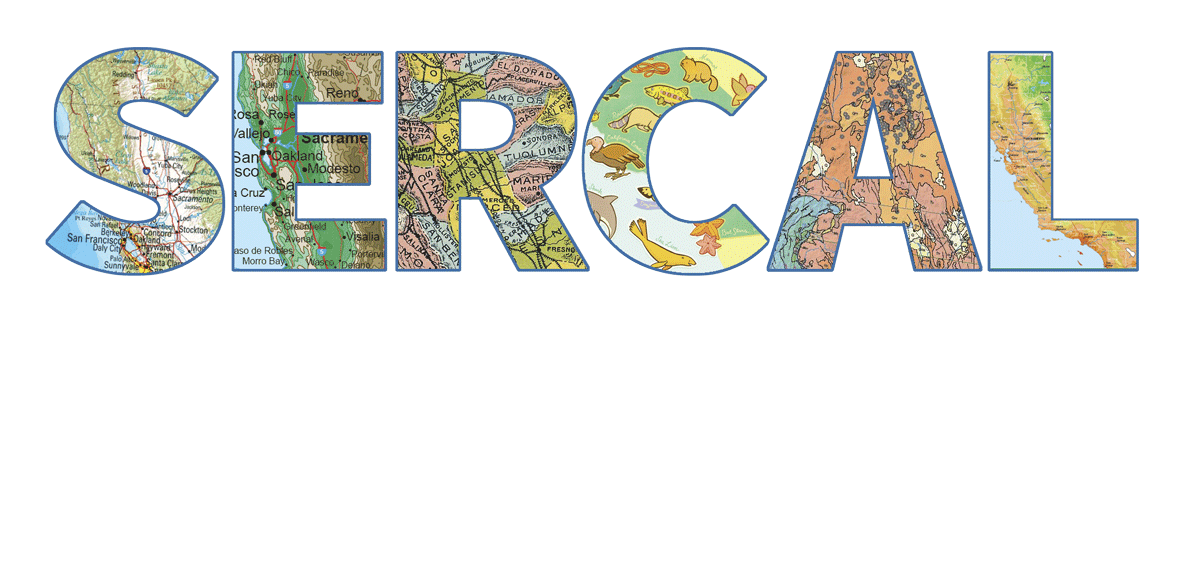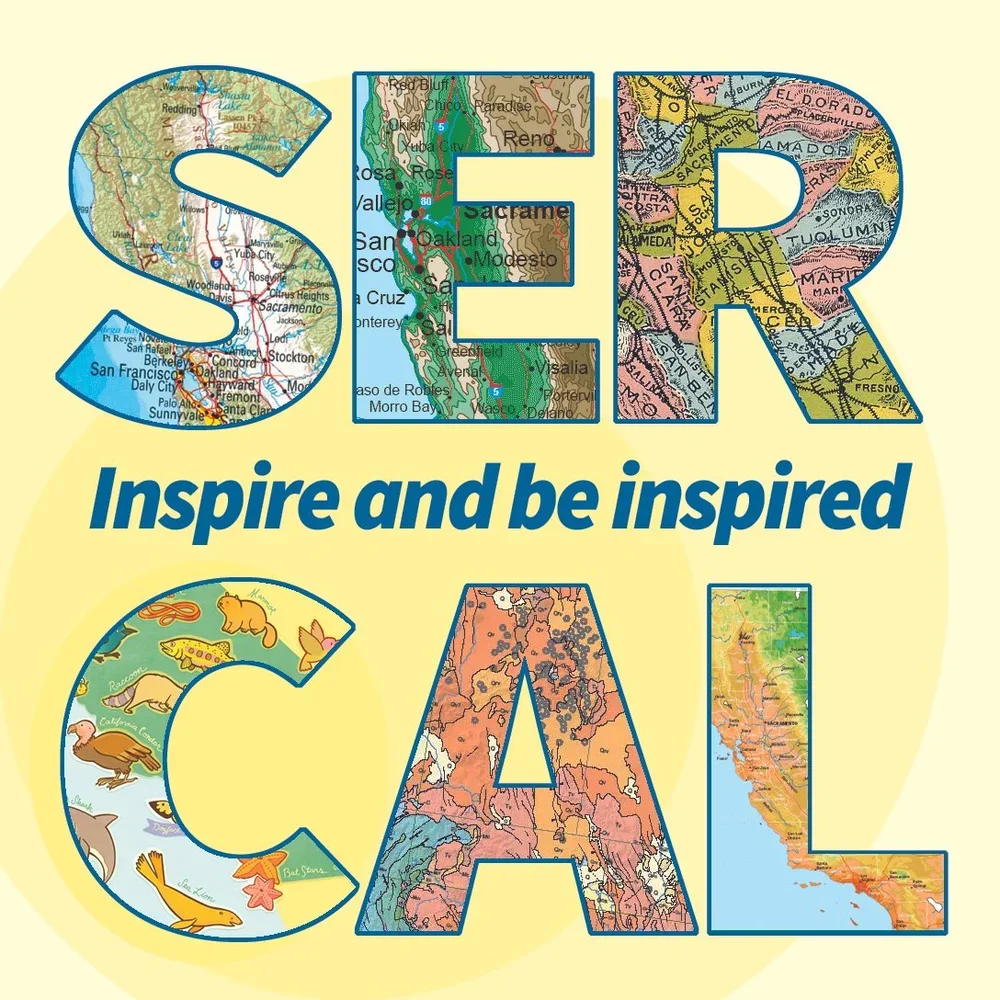Diversity, Equity, Inclusion, and Justice
Just as biodiversity is key to healthy, thriving ecosystems, infusing our work environments with a diversity of perspectives and voices is essential to expanding the scope and benefits of ecological restoration to ALL communities — Restoration for All.
The Diversity Committee plays an active role in SERCAL’s conference and outreach efforts, amplifying voices from under-served, under-represented communities, and highlighting diversity issues within the California ecological restoration industry and SERCAL as an organization. Members of the committee actively research, engage, and publish information on diversity and systematic racism in the industry.
We continue to dig deeper in recognizing, understanding, and incorporating Diversity, Equity, Inclusion, and Justice (JEDI) into what we share with you. Please join us! Our Diversity Committee is actively looking for new volunteers and more ideas! We will be working on the JEDI pages of the website this summer, and here is where we are currently: Diversity Equity & Inclusion, Supporting The Next Generation, and Turn Up the Volume. You can read our Safe Space Contract here and our Land Acknowledgement here.
AND our Mentorship Committee continues to augment and improve SERCAL’s growing Mentorship Program and we need mentors throughout California — especially in the lower and upper thirds of the state. No matter where you are in the experience spectrum — Established, Mid-career, or Emerging Professionals, to students of any age, if you have the interest in working in ecological restoration, we will strive to find a great fit for you. You can learn more and apply to be a Mentor or Mentee here.
Following are links to the history of our progress. We provide these as background to the steps we are taking. We are humbly aware that we are not (and will never be) experts in this process, but we share them so that other organizations can benefit from our learning experiences — the good, the bad, and the ugly! We are humans after all. Please reach out if you have any questions.
Black Lives Matter | Diversity Questionnaire | Continuing the Conversation
July 2020 > Black Lives Matter
Nationwide we are seeing a movement to influence real change by addressing the injustices that are rooted deeply within our society. As an organization dedicated to advancing the science, art, and practice of restoring native California ecosystems, we recognize that the restoration industry is also affected by systemic racism. We reaffirm our commitment to #Restorationforall regardless of race, gender, or sexual orientation. SERCAL will actively listen to, learn from, and highlight the voices of BIPOC communities, and focus on how we can enact positive change from within. — SERCAL Board of Directors, July 2020
january 2021 > Diversity Questionnaire
Our first step towards making informed decisions and pursuing the appropriate actions to enact awareness and change is to better understand the issues and barriers in our field. To do this we sent out a Diversity Questionnaire to our 2020 and 2021 members in early January 2021.
This questionnaire was designed as multiple choice so that we could quickly and easily analyze the data and share the results. We recognize that this has resulted in some generalized or lumped categories, while possibly missing others, and is not truly reflective of our full diversity. We realize that there is much more work to do, and we hope that this is the first step that will allow us to generate the hard discussions and open dialogue in a safe environment.
THE DEFINITIONS WE USED FOR THE SERCAL DIVERSITY QUESTIONNAIRE:
• Field — Broad field of practice that encompasses ecological restoration. This can include but is not limited to: design, permitting, policy, construction, education, maintenance, etc.
• Active racism — Prejudice, discrimination, or antagonism directed against a person or people on the basis of their membership in a particular racial or ethnic group, typically one that is a minority or marginalized; the belief that different races possess distinct characteristics, abilities, or qualities, especially so as to distinguish them as inferior or superior to one another.
• Implicit bias – Attitudes or stereotypes that affect our understanding, actions, and decisions in an unconscious manner, and that are activated involuntarily and without an individual’s awareness or intentional control.
• Systemic racism — A form of racism that is embedded as normal practice within society or an organization, which can lead to such issues as discrimination in criminal justice, employment, housing, health care, political power, and education, among other issues.
• Cultural barriers/beliefs — Challenges to cross-cultural communication within an organization, such as when cultural differences — speaking different languages, having different cultural beliefs, or using different gestures and symbols to communicate — might become barriers to workplace success.
• Microaggression — Brief and commonplace daily verbal or behavioral indignities, whether intentional or unintentional, that communicate hostile, derogatory, or negative attitudes toward stigmatized or culturally marginalized groups.
OCTOBER 2021 > We began a critical conversation at SERCAL 2021 and continued the conversation over lunch…
"Any conversation of race and place in our industry comes with it a responsibility not only to see things as they are, but also to see and envision things as they can be." — Leticia "TC" Morris, Summer 2021 issue of Ecesis
The following is the agenda and recording of the lunchtime webinar we convened after the conference to focus on youth engagement and how to create company programs. Here is the LINK to the recorded webinar — please share widely and reach out if you want to get more involved with SERCAL’s JEDI efforts.
12:00pm Engaging the Next Generation — Lindsay Teunis and Christina Contreras The aim of their presentation is to challenge individuals, companies, and the restoration industry as a whole into action; to be a bridge to the future work force and move toward a diverse industry that reflects the communities, cities, states, and countries we work in. — Lindsay, Principal Restoration Ecologist at SWCA, was co-chair of Diversity, Equity, and Inclusion Session at SERCAL 2021 as well as the guest editor of the recently published “Diversity, Equity, and Inclusion” issue of Ecesis. A long-time mentoring volunteer at Ocean Discovery Institute (ODI), Lindsay takes very seriously the role professionals can play in providing young people with opportunities for educational and professional development. Christina, ODI’s Program Specialist for College and Career, will provide an introduction to ODI and share her experience working in a diverse community with many first-generation underrepresented students.
12:30pm How to Start in Your Own Company? Internships and More — Barbra Calantas This presentation will focus on successful examples of feasible programs and processes that can be implemented in the workplace so that as an environmental industry 1) every colleague from an underrepresented group feels they have equity in career growth and professional advancement and 2) our workforce more closely reflects the communities where we live, work, and serve.” — Barbra is Vice President, Biology Director, of Environmental Science Associates’ (ESA) Southern California region and co-chair of the DEI Session at SERCAL 2021. She recently founded the Environmental Professional Diversity Collective (EPDC), a San Diego–based program to address the lack of diversity, equity, and inclusion in the environmental consulting, architecture, and engineering industries. She shares this about her presentation — “It may feel like a challenge to think about how to implement change and contribute to a truly equitable, inclusive, and diverse industry.
1:00pm Discussion and Q&A
Our Purpose in These Conversations
To reflect on where the restoration industry began, where we are now, and what we have to do to actively create a restoration industry that reflects the world around us with a focus on increasing diversity, equity, and inclusion.
Our primary goals are as follows:
• Provide a platform to elevate industry voices and facilitate individual growth opportunities for all historically underrepresented groups;
• Foster an inclusive, anti-racist culture within our organization to attract and retain black, indigenous, and people of color (BIPOC);
• Increase diversity in the restoration industry by developing mentorship programs that work in conjunction with educational and community programs which focus on increasing the engagement of underrepresented students in STEM fields; and
• Serve as an inspiration and resource for our members and the larger restoration industry to ensure equity in educational opportunities and professional advancement for underrepresented groups in environmental and STEM fields.

